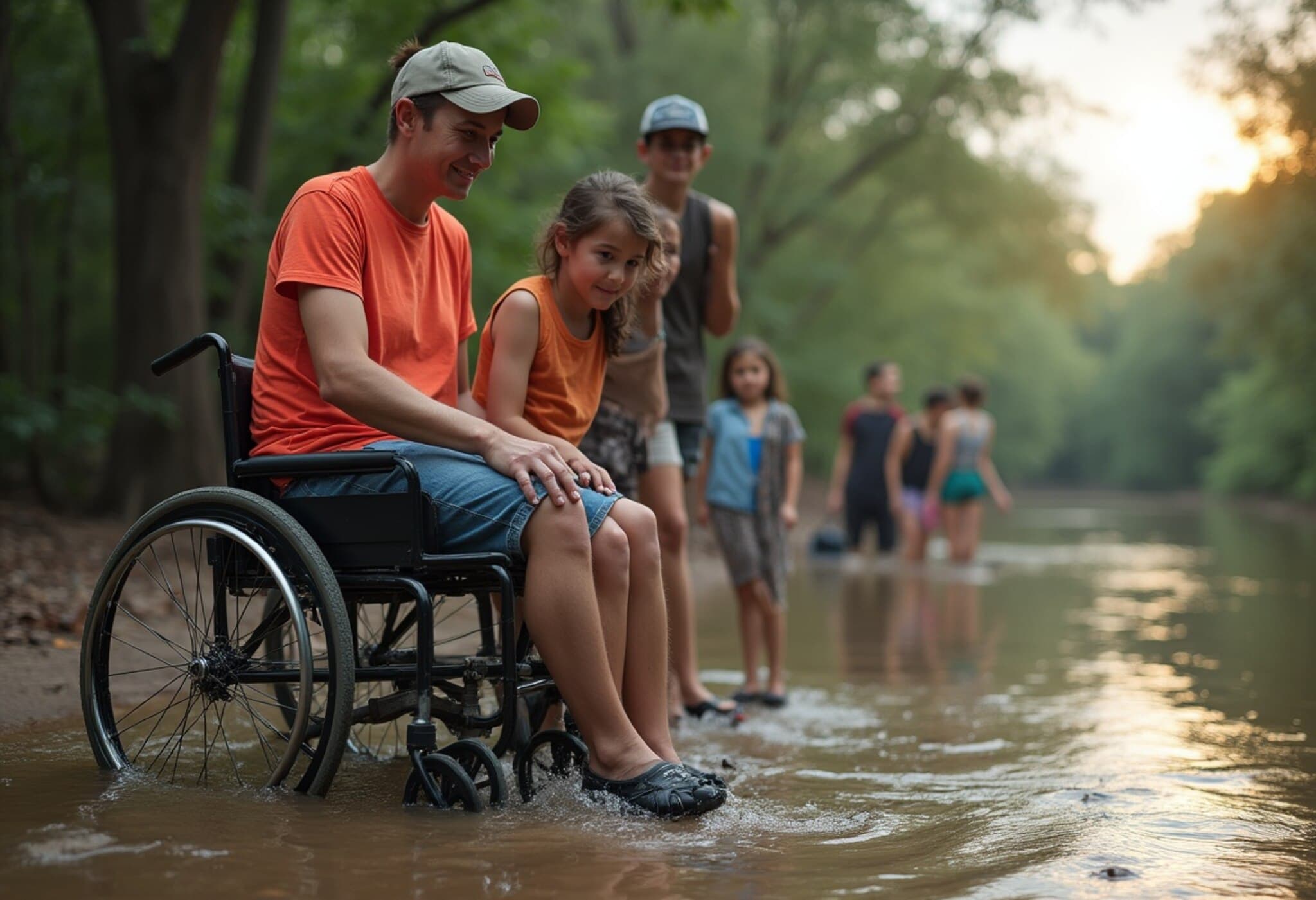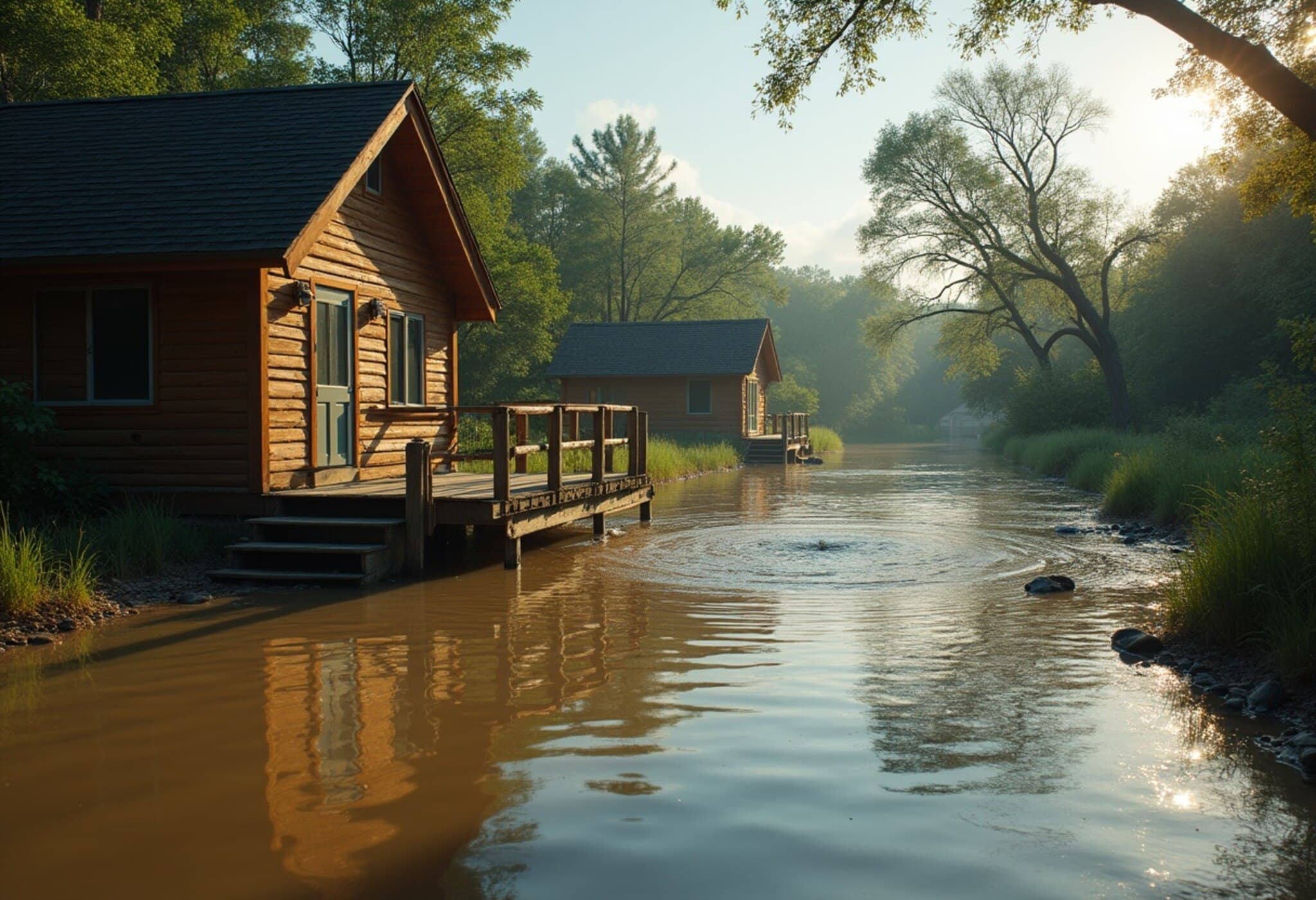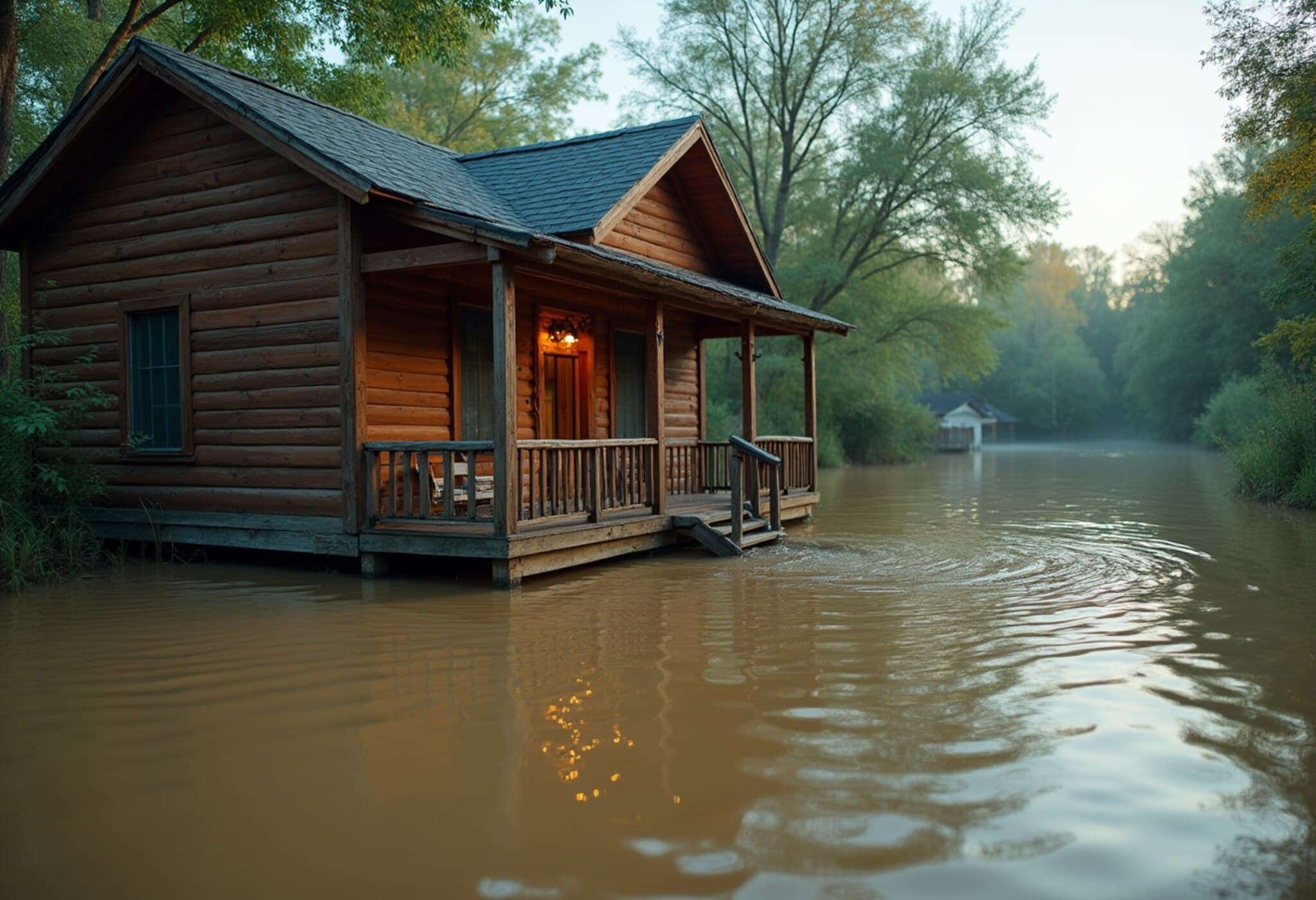Texas Flood Recovery: A Community’s Swift Response Reopens Beloved Summer Camp
In the wake of the devastating Texas floods earlier this month, a powerful story of resilience and community spirit has emerged from Centre Point. Camp Camp, a cherished residential summer program catering to over 800 youth with disabilities, has triumphantly reopened its doors thanks to a massive volunteer-driven cleanup effort that proved the strength of human kindness amid tragedy.
From Crisis to Action: How One Call Mobilized Hundreds
The recovery began with a simple Facebook plea on July 8 from Austin real estate agent Cord Shiflet, who urgently requested "money, manpower, and machines." The response was overwhelming: within 24 hours, more than 250 volunteers had arrived, a figure that soon doubled as word spread across Texas and beyond. Braving intense heat and muddy conditions, these volunteers wielded chainsaws and excavators to clear fallen trees, river debris, and repair the damaged waterfront areas that form the heart of Camp Camp’s outdoor activities.
Restoring More Than a Camp – Renewing Hope
Ken Kaiser, director of facility operations, shared with The Guardian, “Our campers will be able to enjoy our riverfront activities much sooner now. In the midst of heartache, we got to see the best of humanity through these volunteers.” For nearly half a century, Camp Camp has been a sanctuary for children and adults with disabilities, offering horseback riding, swimming, sports, and archery, with counselors dedicated one-on-one to each camper’s unique needs.
A Broader Tragedy: Flood’s Toll on Texas
The flash floods that commenced on July 4 devastated multiple communities, with the Guadalupe River alone surging 26 feet within 45 minutes. The aftermath is grim: at least 135 lives lost and over 150 missing. The economic fallout is staggering as well, with preliminary estimates placing losses between $18 and $22 billion, marking this as one of Texas’s most severe natural disasters on record.
Despite the scale of devastation, state-level responses have so far been cautious. Texas Governor Greg Abbott has assured legislative discussions on enhancing flood warning systems but stopped short of firm policy commitments, highlighting ongoing challenges in disaster preparedness and mitigation.
Looking Ahead: Lessons and Opportunities
Camp Camp’s rapid restoration stands as a beacon of what community-driven recovery can achieve—even as Texas confronts systemic vulnerabilities to increasingly severe weather events. It raises critical questions: How can local governments better support such volunteer efforts? What infrastructure investments are essential to protect vulnerable populations, especially those served by institutions like Camp Camp?
In a time when climate-related disasters are intensifying, this story reminds us of neighborhood solidarity’s potency and the urgent need for comprehensive, compassionate disaster resilience strategies that leave no one behind.
Editor's Note:
Texas’s recent floods underscore the devastating human and economic costs of extreme weather—costs felt acutely by vulnerable communities. While grassroots efforts like the Camp Camp cleanup reveal the inspiring human spirit in crisis, they also highlight systemic gaps in emergency preparedness and response. Moving forward, policymakers, nonprofits, and communities must collaborate to build robust flood resilience, prioritizing effective early warning systems and equitable support for populations with disabilities. How Texas will harness this tragedy as a catalyst for real change remains a critical storyline to follow.











